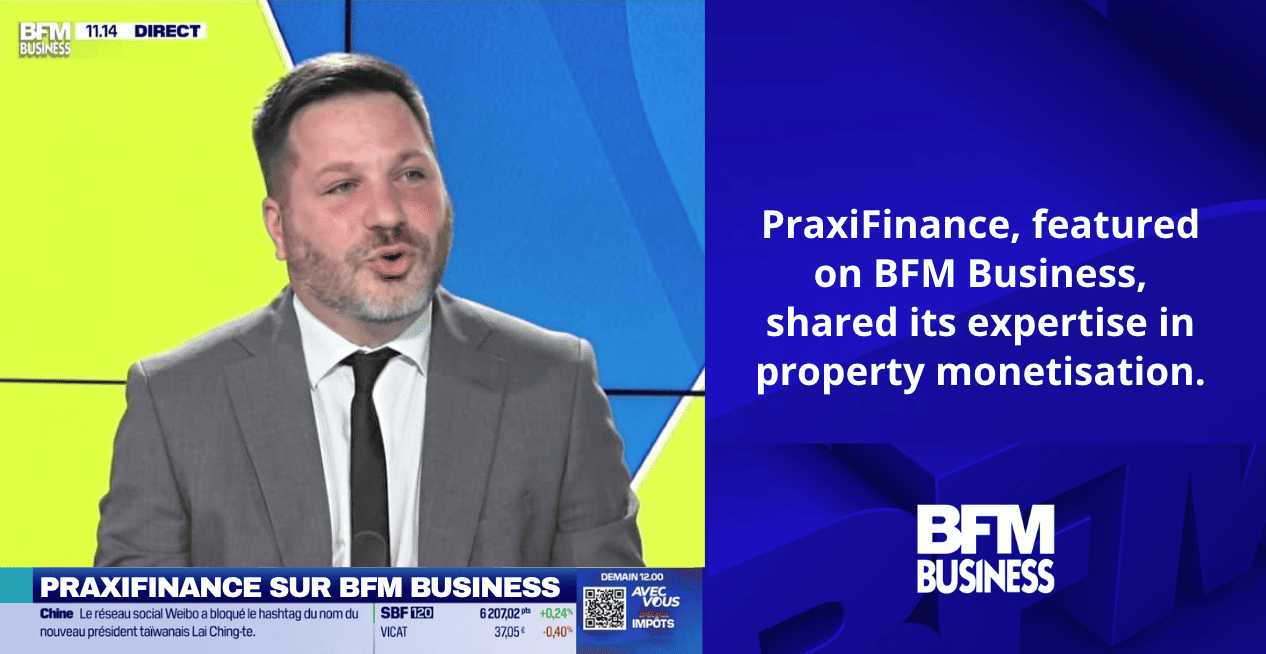Learn how equity release in France provides safe, notary-supervised solutions for homeowners seeking liquidity. Many owners in France hold most of their wealth in property yet experience temporary cash pressure - a tax call, a business opportunity, or a refinancing delay. The mortgage-backed loan turns part of that illiquid value into immediate, regulated liquidity without selling or losing ownership. Since 1990, PraxiFinance has helped residents and non-residents structure these operations from our offices in Paris and Nice. We visit clients throughout France, coordinate with notaries, and build transparent financing plans that respect both French law and your long-term stability.
Understanding the mortgage-backed loan
A mortgage-backed loan is a secured credit facility where your French property guarantees the financing. Because it’s collateralised by real estate, you can obtain higher amounts, longer durations and lower rates than any unsecured consumer loan. You remain full legal owner — the notary merely registers a mortgage lien as a guarantee. Funds can be used freely: refinancing, investment, inheritance equalisation, tax debt repayment, renovation or professional working capital. There is no obligation to justify the purpose as long as it’s legitimate and lawful. PraxiFinance’s role is to make the structure legally clean, financially conservative and fully understandable in both English and French.
How the process works
Every operation follows a strict, transparent workflow under notarial control.
- Property valuation – An independent expert determines market value.
- Loan structuring – PraxiFinance defines the safe loan-to-value (30–60 %) and repayment model.
- Notarial signature – All parties sign an authentic deed; the notary registers the mortgage.
- Funds release – Money is wired from the notary’s escrow to your account.
- Repayment – Either monthly amortisation or a lump-sum at maturity (interest-only “in fine” formula).
This method ensures that funds flow securely and that ownership remains fully yours at every stage.
Types of mortgage-backed structures
Amortising loans
Each monthly payment includes capital + interest, gradually reducing the balance. Predictable, suitable for families and professionals seeking long-term stability.
Interest-only (“in fine”) loans
You pay only interest during the term and repay capital in one transaction at maturity — often from an asset sale or business event. Perfect for investors and entrepreneurs managing liquidity strategically.
Hybrid formulas
A mix of amortisation + final balance. Allows lighter payments early and controlled settlement later, useful when income will increase or an exit is scheduled.
Who can apply for a mortgage-backed loan in France
Eligibility depends on the property, not just your payslip. Typical profiles include :
- French or foreign homeowners with property worth ≥ €400 000 in France;
- self-employed or company directors with irregular income;
- retirees or expats refused by retail banks;
- investors seeking refinancing or portfolio leverage.
Because the decision relies primarily on the property’s value and your repayment horizon, the model serves clients excluded from traditional scoring systems while staying inside the legal mortgage framework.

Advantages over traditional bank credit
- Higher flexibility – Loan terms up to 25 years or interest-only structures.
- Property focus – Decision based on asset value, not standard ratios.
- Tax neutrality – Funds are a loan, not taxable income.
- Speed – Notarial workflow delivers funds in 8–10 weeks.
- Legal security – Every clause authenticated by a French notary.
For senior owners, the lifetime mortgage in France offers similar liquidity without repayments; for active professionals, the mortgage-backed structure remains the most flexible and immediate.
Why this solution exists in France
France allows private mortgage financing under a robust civil-law system supervised by notaries. Unlike speculative lending models elsewhere, every mortgage is registered in the land registry (Service de Publicité Foncière). This guarantees traceability, prevents fraud, and protects heirs. The same regulatory discipline that defines safe equity release in France also governs the mortgage-backed loan.
Tax and legal framework
Interest may be deductible if the loan finances investments that generate income (rental, professional activity). For personal use, proceeds have no income-tax impact. Ownership never changes — only a mortgage registration appears in the notarial deed. All documents are bilingual on request; every calculation is reviewed by PraxiFinance and confirmed by the notary before signature.
For additional context, consult equity release regulations in France to understand the national framework protecting borrowers.
Step-by-step timeline
- Initial consultation – Telephone or on-site meeting (Paris, Nice, or client home).
- Document collection and valuation – 7 to 10 days.
- Structuring & offer validation – 1 week.
- Notarial draft and signature – 2 to 3 weeks depending on schedule.
- Funds release – within 24 h after registration.
Average total: 8–10 weeks. Complex cross-border cases may extend slightly due to bank compliance.
For context on processing speeds, see how equity release works in France.
Example case study
An entrepreneur based in Monaco owns a villa in Nice worth €1.2 million, free of debt. He needs €400 000 to reimburse a shareholder loan and fund expansion. PraxiFinance structures a 10-year interest-only loan at 5 %, registered before a Nice notary. Four weeks later, funds are credited. The operation is fully compliant with French mortgage law, preserving ownership while delivering professional liquidity.
Practical drawbacks to anticipate
- Interest payments require budgeting (especially for interest-only plans).
- Valuation and notarial fees average 1–2 % of the loan.
- Early repayment triggers a standard penalty (≈ 3 months’ interest).
- Loan-to-value ratios are capped by property location and profile.
Knowing these parameters helps avoid surprises and reinforces confidence.
Costs and transparency
PraxiFinance operates on full fee disclosure. The notarial deed lists every component: valuation, registration, service, and bank charges if applicable. Nothing is hidden; there are no “arrangement surprises”. Our bilingual advisers explain all numbers clearly before signature.
To estimate your capacity, use the mortgage-backed loan simulator to model your property value, term and indicative payment.
Why choose PraxiFinance
PraxiFinance is not a bank; it’s a structuring house dedicated exclusively to property monetisation. Since 1990, our mission has been to transform real-estate wealth into usable liquidity safely and transparently.
- 35 years of experience in mortgage structuring.
- Partnerships with major French and European banks.
- Bilingual experts serving expatriates worldwide.
- Transparent fees – no hidden costs, no brokerage mark-ups.
- Notarial supervision at every stage.
Our teams in Paris and Nice coordinate directly with notaries and valuers, meeting clients at home when needed. This proximity builds trust and ensures no step is delegated to chance.
For comparison of our legal safeguards with other models, read the best equity release companies in France.
The bigger picture within equity release
The mortgage-backed loan is one branch of the broader equity-release ecosystem. Seniors may prefer a lifetime mortgage in France for no repayments; others use a sale with deferred price simulator to calculate an immediate advance before sale. Each path monetises property responsibly under the same legal umbrella of French notarial law.
FAQ – Mortgage-Backed Loan France
Can non-residents apply?
Yes. Many expatriates and investors use this model to obtain liquidity on French property under notarial control.
What amount can be borrowed?
Typically up to 60 % of the property’s appraised value. Exact ratio depends on location and profile.
How long does the process take?
Average 8–10 weeks from initial consultation to funds release.
Are there monthly repayments?
Yes, for amortising structures. Interest-only (“in fine”) plans limit monthly cost to interest only.
Can I repay early?
Yes, after 12 months with a standard penalty (≈ 3 months interest).
What guarantees exist?
The mortgage registration and notarial act ensure complete legal protection for owner and lender.
How is this different from a remortgage?
A remortgage replaces an old bank loan; a mortgage-backed loan releases new liquidity from your existing property. See equity release vs remortgage in France for a full comparison.
Is it taxed as income?
No. The proceeds are borrowed funds, not income. They are tax-neutral under French law.



.png)


.svg)






